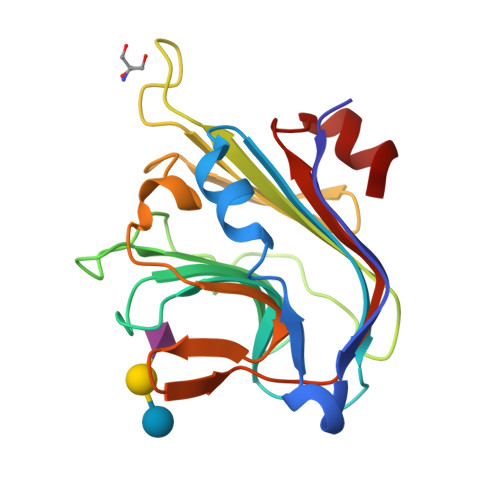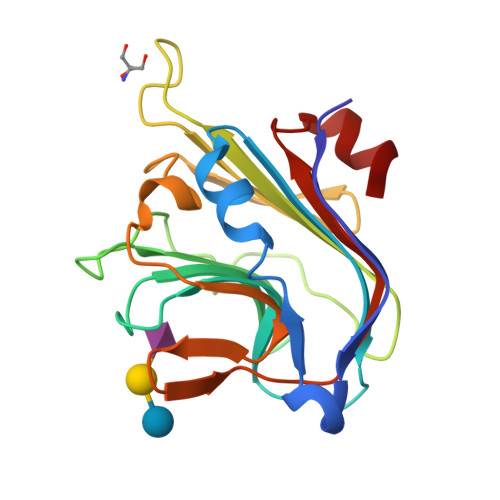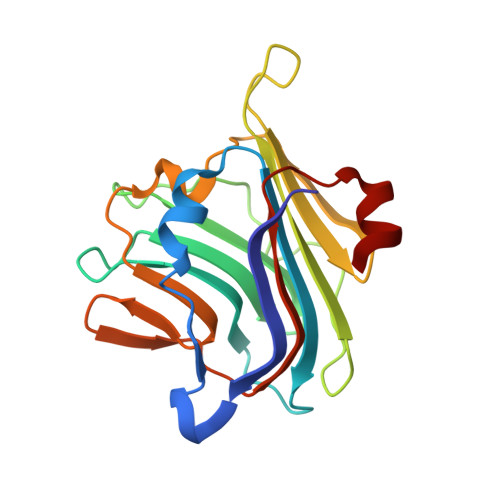Prevention of Influenza by Targeting Host Receptors Using Engineered Proteins.
Connaris, H., Govorkova, E.A., Ligertwood, Y., Dutia, B.M., Yang, L., Tauber, S., Taylor, M.A., Alias, N., Hagan, R., Nash, A.A., Webster, R.G., Taylor, G.L.(2014) Proc Natl Acad Sci U S A 111: 6401
- PubMed: 24733924
- DOI: https://doi.org/10.1073/pnas.1404205111
- Primary Citation of Related Structures:
4C1W - PubMed Abstract:
There is a need for new approaches for the control of influenza given the burden caused by annual seasonal outbreaks, the emergence of viruses with pandemic potential, and the development of resistance to current antiviral drugs. We show that multivalent biologics, engineered using carbohydrate-binding modules specific for sialic acid, mask the cell-surface receptor recognized by the influenza virus and protect mice from a lethal challenge with 2009 pandemic H1N1 influenza virus. The most promising biologic protects mice when given as a single 1-μg intranasal dose 7 d in advance of viral challenge. There also is sufficient virus replication to establish an immune response, potentially protecting the animal from future exposure to the virus. Furthermore, the biologics appear to stimulate inflammatory mediators, and this stimulation may contribute to their protective ability. Our results suggest that this host-targeted approach could provide a front-line prophylactic that has the potential to protect against any current and future influenza virus and possibly against other respiratory pathogens that use sialic acid as a receptor.
Organizational Affiliation:
Biomedical Sciences Research Complex, University of St Andrews, North Haugh, St Andrews, Fife KY16 9ST, United Kingdom.



















